For almost a decade, the U.S. Institute of Peace and its Iraqi partners have supported ethnic and religious minority communities in Iraq as part of the Institute’s broader mission of helping the country strengthen communal and institutional resilience. Employing innovative approaches to peacebuilding, USIP seeks to empower minority groups including Christians, Faily Kurds, Kakayees, Sabean-Mandaeans, Shabaks, and Eyzidis (Yazidis) to solve inter-communal disputes, and to advocate at all levels of government for their rights, access to services, and security.
Stabilization and Resilience in Iraq’s Minority Communities
To do so, the Institute works directly with local civil society organizations and networks. In the post-ISIS era these groups are playing a vital role in creating conditions for the safe, voluntary and sustainable return of minority internally displaced persons (IDPs) and refugees to their communities in the Nineveh Plains, Sinjar (Shingal) and elsewhere in northern Iraq.
Before the rise of ISIS, Iraq’s minority groups were increasingly shut out of government decision-making both locally and in Baghdad. Their marginalization contributed significantly to the failure to protect predominantly minority areas, and ultimately helped ease the way for the extremists’ invasion, which uprooted their communities.
Today, the minorities of Iraq continue to experience physical insecurity, political exclusion and a lack of proper public services. Meanwhile, the threat posed by intercommunal tensions among minority groups has discouraged many displaced residents from returning to their homes and contributed to emigration from their ancestral towns and villages. These conditions hamper early recovery efforts and development of longer-term resilience.
Alliance of Iraqi Minorities
Alliance of Iraqi Minorities
USIP helped establish, and continues to support, the Alliance of Iraqi Minorities (AIM), a coalition of civil society organizations that provides a voice for minority groups. AIM was formed in 2011 and is comprised of 18 non-governmental organizations (NGOs) representing the Christian, Faily Kurd, Kakayee, Sabean-Mandaean, Shabak, and Eyzidi (Yazidi) communities, among others.
- In 2012, AIM successfully pushed for a change in the national budget law that led to minority areas receiving a more equitable share of government funding. The following year, AIM worked to implement the new law by leading a participatory budgeting process in Nineveh, which resulted in construction of schools, clinics, roads, and water projects. While the ISIS calamity and subsequent displacement disrupted its efforts, AIM resumed its work by developing a toolkit on participatory budgeting that shows how civic participation can contribute to stabilization of liberated minority areas. Participatory budgeting provides minority communities with a chance to join in decisions on local resource allocation, and offers a productive outlet for engagement with local and provincial governments—a substantive alternative to violence and migration. AIM has broadened public exposure to the participatory budgeting toolkit through workshops in towns throughout northern Iraq.
- In 2012 and 2013, AIM contributed to changes in Iraqi textbooks and school curriculums to include information on minorities and passages from their holy books and literature. Today, AIM is working with education officials in Baghdad and Erbil on broader education reform efforts.
- In 2013 and 2015, AIM sought amendments to the Law on Regulating Rights of Components in the Kurdistan Region of Iraq. Its recommendations to the region’s parliament included ensuring a role for minorities in formulating legislation and policy, guaranteeing their representation in the judiciary and strengthening implementation of the law itself.
- The Alliance proved particularly important in relation to addressing the tragic effects of ISIS. During and after the extremist group’s attacks on minority communities in 2014, AIM helped document ISIS crimes against Eyzidi (Yazidi) women and advised Iraq’s parliament and the international community on minorities’ needs. AIM advocates for reparations for minority communities harmed by ISIS violence and works with government agencies to help revive devastated minority communities.
Outcome-Oriented Facilitated Dialogues
USIP also works with minority communities to initiate problem-solving dialogues and other activities in key Iraqi provinces, especially as they relate to displaced minority groups and Iraq’s delicate social fabric. As tensions arise between the country’s ethnic and religious groups in areas liberated from ISIS—including non-minority sectors—USIP encourages reconciliation and community building by identifying the barriers, challenges and opportunities for conflict resolution.
USIP has invested significantly in its strategic partner Sanad for Peacebuilding, an Iraqi peacebuilding organization, and the Network of Iraqi Facilitators (NIF), as well as AIM, through training and mentoring on facilitated dialogue. With technical support from USIP, these locally led programs focus on de-escalating conflict by forging agreements that address governance, security and economic grievances at the community, local, and national levels. USIP’s outcome-oriented dialogue processes have been implemented in Tikrit, Hawija, Mahmoudiyah and elsewhere across Iraq.
- In the summer of 2018, USIP and Sanad began a dialogue process with tribal and community leaders, including both Sunni and Shia Turkmen, in Ayadiya, a town near the city of Tal Afar. In August, tribal and community leaders, representatives from the central government, and the local governments in Nineveh governorate and in Tal Afar district signed an agreement that facilitates the return of 40,000 IDPs and sets out peaceful coexistence principles.
- In Nineveh province, USIP and AIM have worked on reconciliation between the Christian and Shabak communities in the town of Bartella since 2011. Significant tensions between them from 2011 to 2013 spurred a USIP-facilitated dialogue that in turn led to the formation of a Christian-Shabak committee of community leaders designed to foster peaceful coexistence. However, demographic changes and the rise of local armed groups following ISIS’s occupation strained relations, raising significant barriers to IDPs’ return. As a result, in 2017 USIP and Sanad began a continuing dialogue initiative— supported by AIM — to address intra-community tensions among Christians and Shabaks.
Research
To better identify the drivers of conflict and barriers to return, USIP has collaborated with AIM and local researchers to collect data on stabilization and conflict dynamics, exploring local perceptions and inter-group relations, specifically between Christians and Shabak in the Nineveh Plains. The research presents recommendations to various stakeholders and decision-makers on the best means to address group grievances in the area.
In 2016 and 2017, USIP produced, in partnership with the Middle East Research Institute five studies on the perceptions of reconciliation held by minority communities in Nineveh province including Christian, Eyzidi (Yazidi), Sabean-Mandaean, Shabak and Turkmen. These assessments, which provide insights into the causes of conflict and demands of these communities, have been shared with international and national stakeholders including the U.S. and Iraqi governments. The research contains recommendations for the communities and can help policymakers craft a strategy for greater minority inclusion in Iraq by shedding light on the sources of conflict and grievance.
Featured Publications
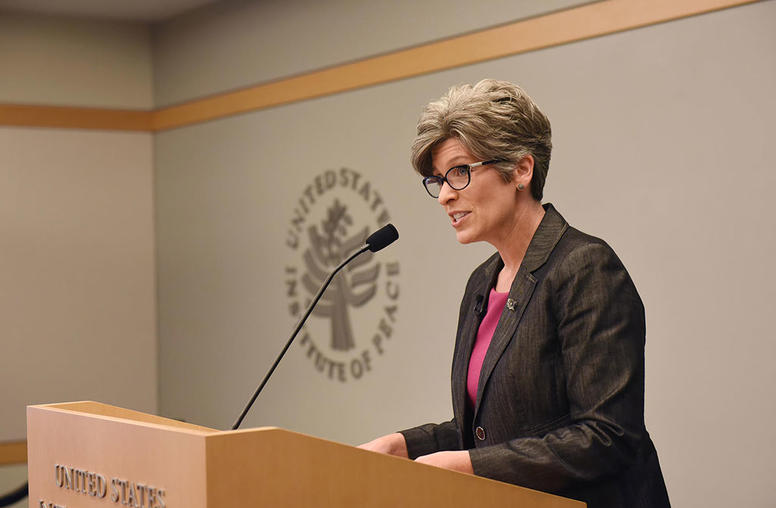
Iraq Mission Not Over for U.S., Senator Ernst Says
U.S. Senator Joni Ernst said that despite Americans’ weariness with U.S. involvement in Iraq, concerns about terrorism and regional stability make a continuing military commitment in the country a necessity.
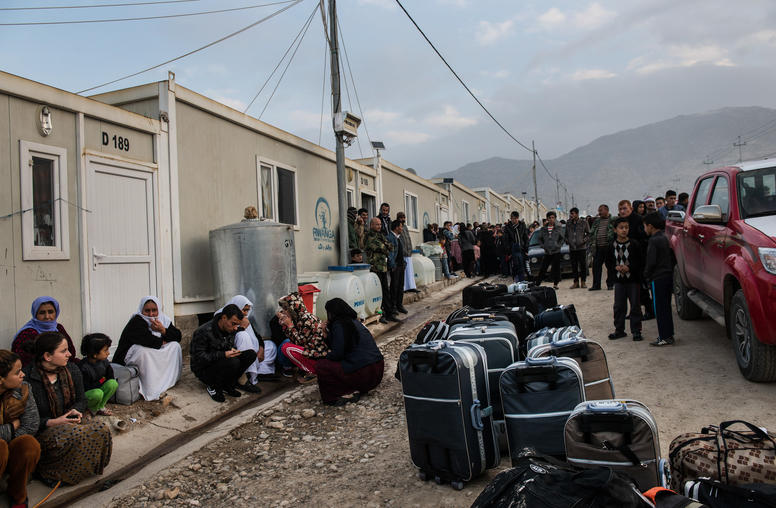
How Iraq’s Minorities Can Secure a Future After ISIS
With international assistance and a measure of justice and stability, Iraq’s ancient minority groups may stand a chance.
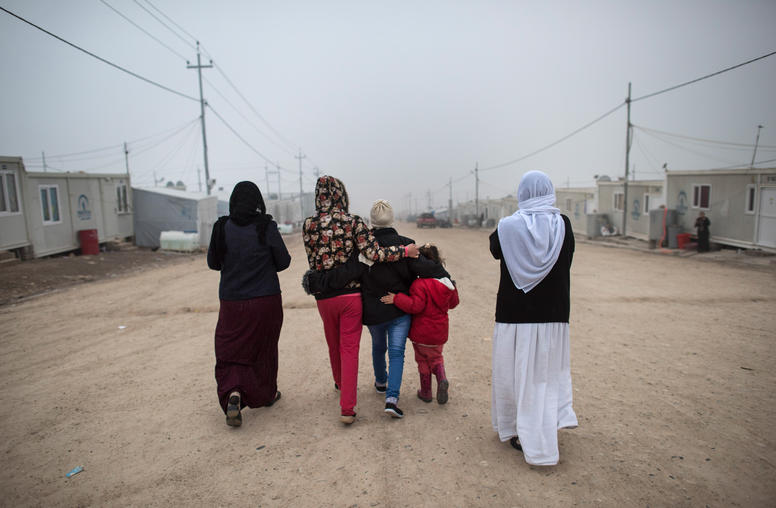
ISIS Makes Sex Slavery Key Tactic of Terrorism
Action against violent extremism must address abuse of women, U.N. Official Says
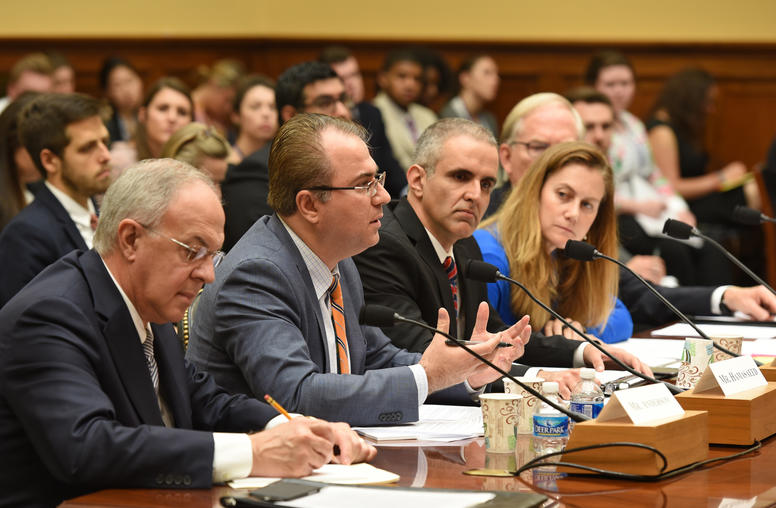
The ISIS Genocide Declaration: What Next?
Sarhang Hamasaeed, senior program officer for the Middle East programs at the U.S. Institute of Peace, testified before the House Foreign Affairs Subcommittee on Africa, Global Health, Global Human Rights and International Organizations.
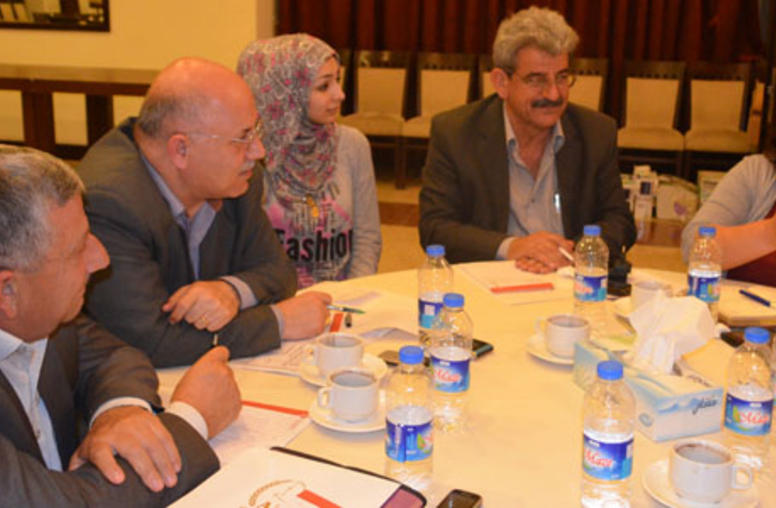
Iraqi Minorities Experience May Show Way for Building Stability
Members of the Board of Directors of the Alliance of the Iraqi Minorities, USIP Staff, and Sanad for Peacebuilding Staff discuss preparations for the general assembly meeting.
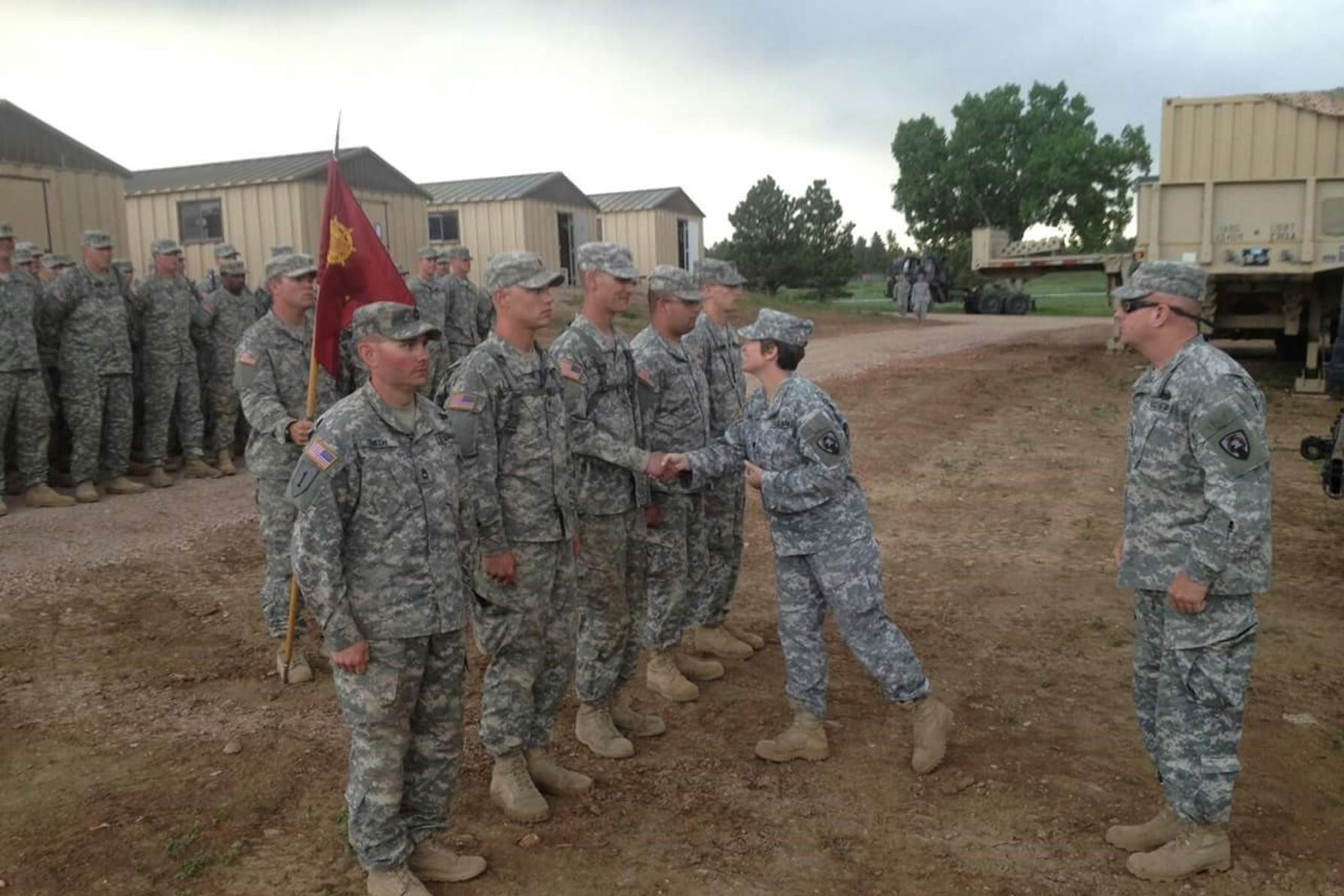
Event Highlight
Senator Joni Ernst to Discuss U.S. Policy Options in Post-ISIS Iraq
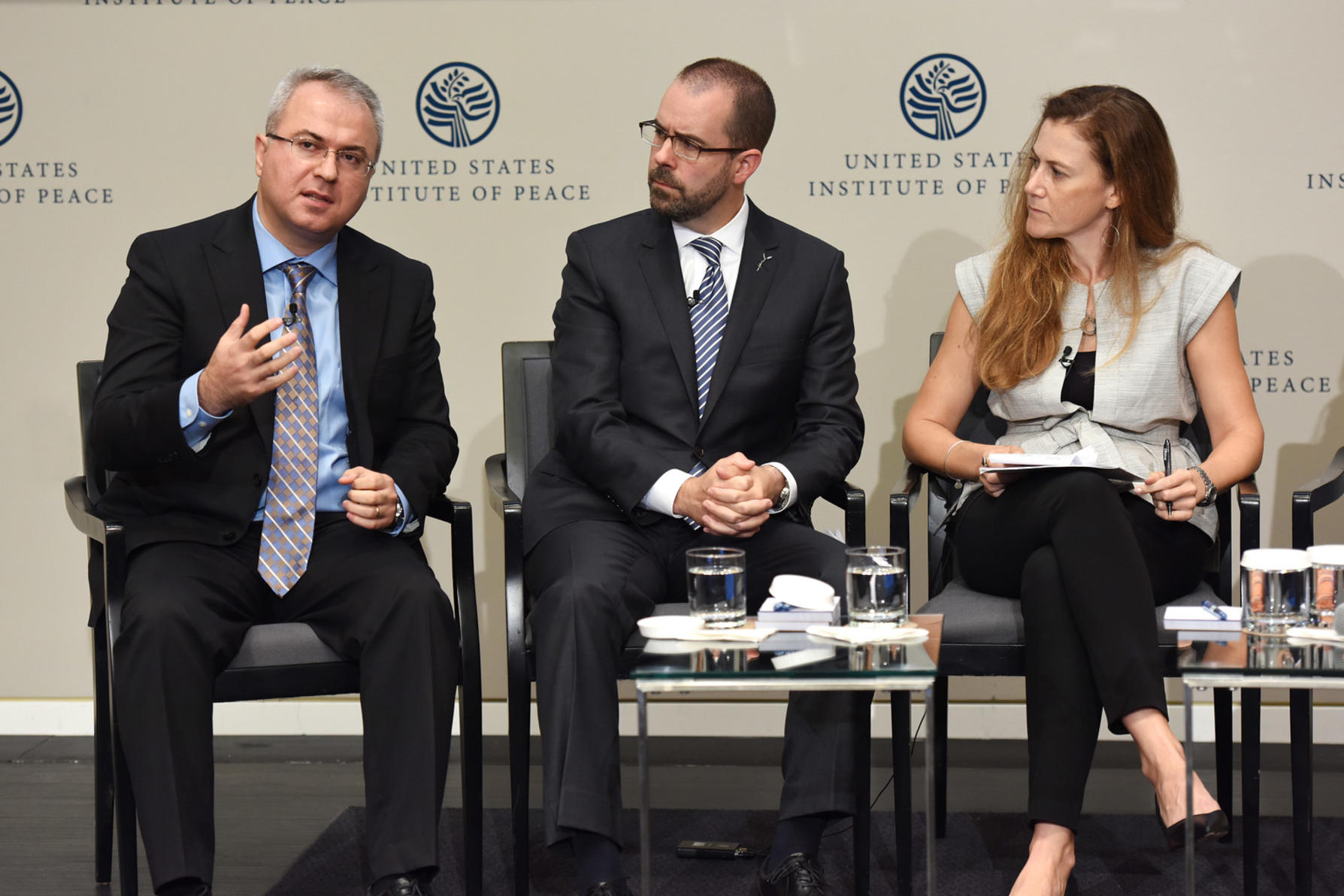
Event Highlight




